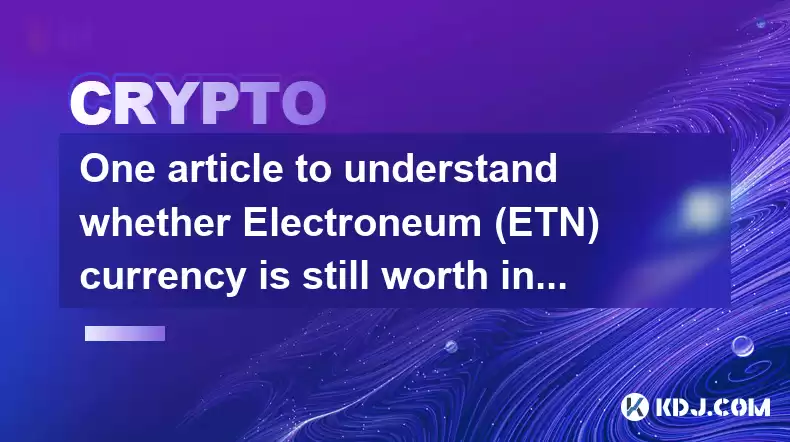-
 Bitcoin
Bitcoin $115000
0.12% -
 Ethereum
Ethereum $3701
4.50% -
 XRP
XRP $3.081
2.99% -
 Tether USDt
Tether USDt $0.0000
-0.01% -
 BNB
BNB $767.9
1.45% -
 Solana
Solana $169.5
3.13% -
 USDC
USDC $0.9999
0.01% -
 Dogecoin
Dogecoin $0.2106
4.30% -
 TRON
TRON $0.3334
1.62% -
 Cardano
Cardano $0.7564
2.54% -
 Stellar
Stellar $0.4165
0.76% -
 Hyperliquid
Hyperliquid $38.75
0.25% -
 Sui
Sui $3.593
3.00% -
 Chainlink
Chainlink $17.08
3.59% -
 Bitcoin Cash
Bitcoin Cash $573.6
4.35% -
 Hedera
Hedera $0.2508
-0.84% -
 Avalanche
Avalanche $23.07
6.46% -
 Ethena USDe
Ethena USDe $1.001
-0.02% -
 Litecoin
Litecoin $120.8
8.17% -
 UNUS SED LEO
UNUS SED LEO $8.943
-0.32% -
 Toncoin
Toncoin $3.400
-5.60% -
 Shiba Inu
Shiba Inu $0.00001255
1.54% -
 Uniswap
Uniswap $9.908
6.32% -
 Polkadot
Polkadot $3.718
2.10% -
 Monero
Monero $303.0
-0.74% -
 Dai
Dai $0.9999
-0.02% -
 Bitget Token
Bitget Token $4.392
0.91% -
 Cronos
Cronos $0.1403
6.31% -
 Pepe
Pepe $0.00001076
1.13% -
 Aave
Aave $267.2
1.80%
One article to understand whether Electroneum (ETN) currency is still worth investing in now
Investing in Electroneum (ETN) carries risks and potential returns, warranting careful consideration of market performance, partnerships, risk factors, and long-term viability before making any investment decisions.
Jan 02, 2025 at 04:04 pm

Key Points:
- Understanding Electroneum (ETN) and Its Value Proposition
- Assessing ETN's Market Performance, Partnerships, and Developments
- Analyzing the Pros and Cons of Investing in ETN
- Identifying Risk Factors and Potential Returns
- Examining the Long-Term Viability of ETN as an Investment Option
Article Content:
About Electroneum (ETN)
Electroneum is a cryptocurrency designed to revolutionize digital payments by making them accessible to the unbanked and smartphone users worldwide. ETN offers high transaction speeds, low fees, and the ability to mine coins on mobile devices. Its unique approach has attracted a significant user base, but its long-term viability as an investment remains a key concern.
Market Performance, Partnerships, and Developments
ETN has experienced significant price fluctuations since its launch. In 2018, it reached an all-time high of around $0.18, but has since declined to around $0.007 at the time of writing. Despite the price volatility, ETN has forged partnerships with notable organizations, including MobileCoin and Mercuryo, to enhance its payment ecosystem. It has also developed various products and initiatives, such as the AnyTask microtasking platform, to drive adoption.
Pros and Cons of Investing in ETN
Pros:
- Potential for growth as the cryptocurrency for mobile payments
- Accessible to individuals with limited financial resources and smartphone access
- Easy-to-use mining process on mobile devices
- Partnerships with established organizations in the blockchain industry
- Regular updates and developments to improve the ecosystem
Cons:
- Volatility in market price and competition from other cryptocurrencies
- Relatively low liquidity compared to larger cryptocurrencies
- Concerns about long-term scalability and mass adoption
- Potential regulatory challenges in certain jurisdictions
- Limited investment-specific features or use cases
Risk Factors and Potential Returns
Investing in ETN involves potential risks and rewards. The cryptocurrency market is highly volatile, and ETN is no exception. Its price can fluctuate dramatically, leading to losses on investment. Additionally, technological challenges or regulatory issues could adversely affect its value. However, if ETN successfully addresses these risks and gains widespread adoption as a mobile payment solution, it has the potential to generate significant returns for investors.
Long-Term Viability of ETN as an Investment
The long-term viability of ETN as an investment depends on its ability to overcome key challenges. It needs to increase liquidity, enhance its scalability, and address regulatory concerns. Additionally, the growth and adoption of mobile payments in emerging markets will play a vital role in its success. If ETN fails to address these factors, its long-term value as an investment may be limited.
FAQs:
Q: Is Electroneum (ETN) still a good investment?
A: The long-term viability of ETN as an investment depends on factors such as its market performance, partnerships, developments, risk factors, and potential returns. It requires careful consideration and risk assessment before making any investment decisions.
Q: What is the potential growth of Electroneum (ETN)?
A: The potential growth of ETN depends on its ability to increase liquidity, enhance scalability, address regulatory concerns, and drive adoption as a mobile payment solution. Its success in these areas will determine its long-term value.
Q: What are the risks of investing in Electroneum (ETN)?
A: Investing in ETN involves risks such as price volatility, limited liquidity, technological challenges, regulatory concerns, and competition from other cryptocurrencies. It is crucial to assess these risks and understand the potential for loss before investing.
Q: Is Electroneum (ETN) worth mining?
A: Whether mining ETN is profitable depends on factors such as mining difficulty, reward size, electricity costs, and hardware efficiency. It requires careful calculation and assessment of these factors to determine the potential returns and risks involved in mining.
Disclaimer:info@kdj.com
The information provided is not trading advice. kdj.com does not assume any responsibility for any investments made based on the information provided in this article. Cryptocurrencies are highly volatile and it is highly recommended that you invest with caution after thorough research!
If you believe that the content used on this website infringes your copyright, please contact us immediately (info@kdj.com) and we will delete it promptly.
- Velo Universe, DEX, and DeFi Security: Navigating the Future of Decentralized Trading
- 2025-08-05 09:25:13
- Bitget Wallet Revolutionizes Solana with Gas-Free Transactions: A New Era for DeFi
- 2025-08-05 09:25:13
- Ozak AI, Crypto Boom, and ROI Potential: Is This the Next Big Thing?
- 2025-08-05 09:25:24
- Solana's ETF Hopes & the All-Time High Chase: Is SOL Set to Soar?
- 2025-08-05 09:25:24
- Coinbase's Brian Armstrong and the Art of Focused Work: A Deep Dive
- 2025-08-05 09:25:30
- Uniswap Price Prediction: Bullish Reversal on the Horizon?
- 2025-08-05 09:25:30
Related knowledge

What is Chainlink (LINK)?
Jul 22,2025 at 02:14am
Understanding Chainlink (LINK): The Decentralized Oracle NetworkChainlink is a decentralized oracle network designed to bridge the gap between blockch...

What is Avalanche (AVAX)?
Jul 22,2025 at 08:35am
What is Avalanche (AVAX)?Avalanche (AVAX) is a decentralized, open-source blockchain platform designed to support high-performance decentralized appli...

What is Polkadot (DOT)?
Jul 19,2025 at 06:35pm
Understanding the Basics of Polkadot (DOT)Polkadot (DOT) is a multi-chain network protocol designed to enable different blockchains to transfer messag...

What is Litecoin (LTC)?
Jul 23,2025 at 11:35am
Overview of Litecoin (LTC)Litecoin (LTC) is a peer-to-peer cryptocurrency that was created in 2011 by Charlie Lee, a former Google engineer. It is oft...

What is Monero (XMR)?
Jul 21,2025 at 10:07am
What is Monero (XMR)?Monero (XMR) is a decentralized cryptocurrency designed to provide enhanced privacy and anonymity for its users. Unlike Bitcoin a...

How to add indicators to Ethereum chart on TradingView?
Jul 19,2025 at 07:15am
What Is an Ethereum Chart on TradingView?The Ethereum chart on TradingView is a visual representation of the price movement of Ethereum (ETH) over a s...

What is Chainlink (LINK)?
Jul 22,2025 at 02:14am
Understanding Chainlink (LINK): The Decentralized Oracle NetworkChainlink is a decentralized oracle network designed to bridge the gap between blockch...

What is Avalanche (AVAX)?
Jul 22,2025 at 08:35am
What is Avalanche (AVAX)?Avalanche (AVAX) is a decentralized, open-source blockchain platform designed to support high-performance decentralized appli...

What is Polkadot (DOT)?
Jul 19,2025 at 06:35pm
Understanding the Basics of Polkadot (DOT)Polkadot (DOT) is a multi-chain network protocol designed to enable different blockchains to transfer messag...

What is Litecoin (LTC)?
Jul 23,2025 at 11:35am
Overview of Litecoin (LTC)Litecoin (LTC) is a peer-to-peer cryptocurrency that was created in 2011 by Charlie Lee, a former Google engineer. It is oft...

What is Monero (XMR)?
Jul 21,2025 at 10:07am
What is Monero (XMR)?Monero (XMR) is a decentralized cryptocurrency designed to provide enhanced privacy and anonymity for its users. Unlike Bitcoin a...

How to add indicators to Ethereum chart on TradingView?
Jul 19,2025 at 07:15am
What Is an Ethereum Chart on TradingView?The Ethereum chart on TradingView is a visual representation of the price movement of Ethereum (ETH) over a s...
See all articles

























































































